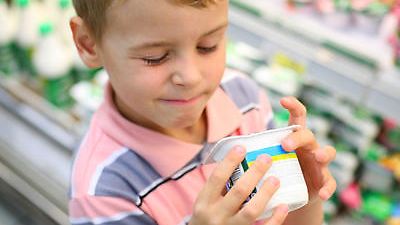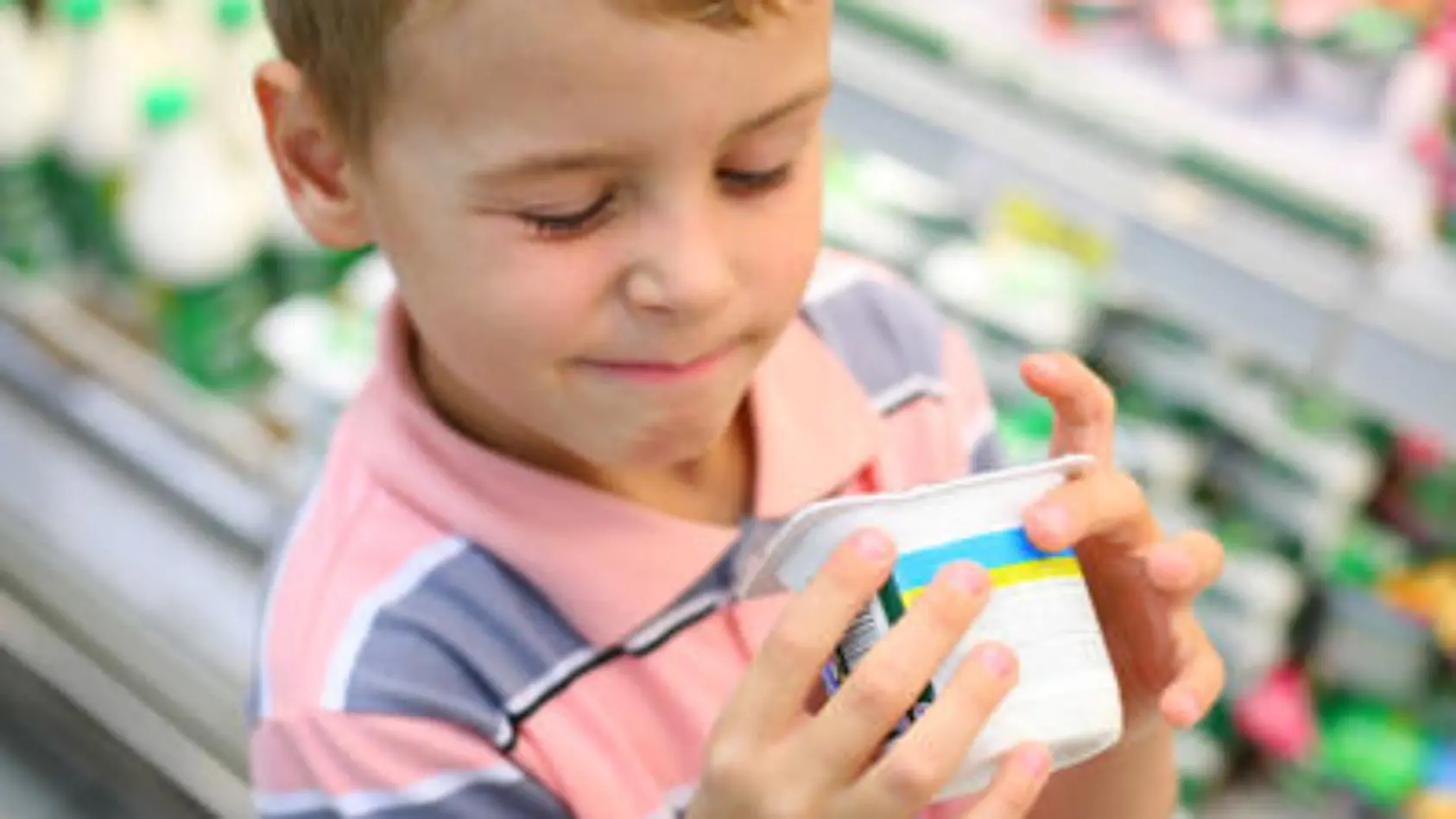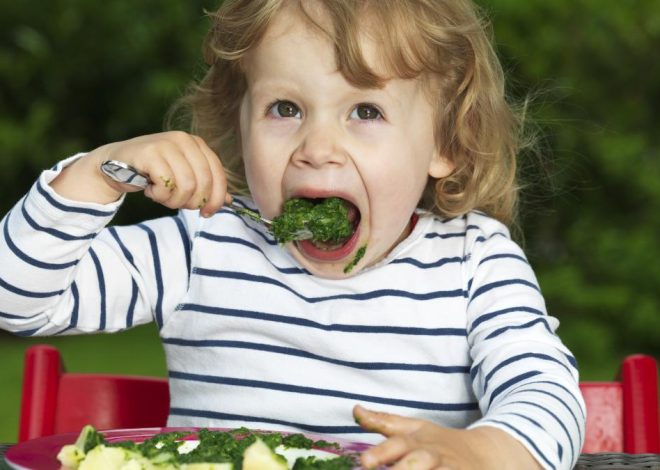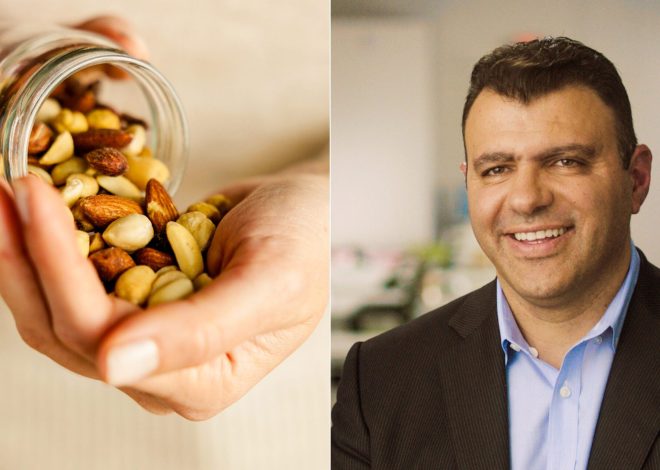
What really constitutes a healthy diet
What really matters when it comes to feeding your little ones
Food for children is always healthier than normal food? Not at all!

Many children’s foods contain a lot of sugar, sweeteners and additives.
Parents only want the best for their child. That’s why many consciously choose foods that are specifically designed for little ones.
And this is often based on the assumption that this will provide the kids with an extra portion of vitamins and minerals. We explain why this is often a fallacy and why the products often contain a lot of sugar, sweeteners and other additives.
What are children’s foods?
Breakfast snacks, dairy products, vitamin sweets – the shelves of supermarkets and discount stores are stacked with products that have been specifically developed for children. In recent years, the number of such products has multiplied.
According to the Research Institute for Child Nutrition (FKE), a food is considered a child food if at least one of the following criteria applies:
-
Label “for children” or “for kids”
-
eye-catching packaging design, for example with cartoon characters
-
special shaping of the food, for example as an animal or cartoon figure
-
Extras such as stickers, trading cards or game figures
-
Advertising specifically aimed at children or corresponding websites of manufacturers or advertising by influencers
While infant formula and products for toddlers aged one to three years are subject to dietary regulations and are checked particularly strictly for ingredients and possible residues, there are no regulations whatsoever for children’s food.
Now we need your opinion
Recommendations from our partners
Why children’s food is not healthier than conventional food – quite the opposite!
Many foods such as flakes, sweets, drinks or yoghurts designed for children are characterized by the fact that they contain a lot of sugar, fat and additives and are often also more expensive.
This is also confirmed by a recent market check by the Hamburg Consumer Advice Center. A total of 13 products were examined that mom or dad influencers advertised on their social media channels as children’s or family food. Many of the products contained a lot of sugar or sugar substitutes that are not recommended, according to the Consumer Advice Center’s conclusion.
What many people don’t know is that there are no regulations for the sugar content in children’s food. Parents who try to get around the problem by buying products with low-calorie sweeteners or sugar alternatives aren’t doing their kids any favors either. Because the little ones quickly get used to the artificial sweetness and are therefore even less likely to accept naturally sweet foods like fruit. “Anyone who eats or drinks a lot of sweet things as a child will continue to do so later in life,” warns Britta Gerckens from the Hamburg Consumer Advice Center.
Reading tip: Mega-trend sugar substitutes! How healthy are xylitol, erythritol and co.?
Why children should not consume sugar substitutes or food supplements
However, sugar substitutes should be viewed critically for another reason: sugar substitutes such as maltitol or sorbitol can have a laxative effect if consumed in excess. Due to their lower body weight, the tolerance threshold in children is significantly lower than in adults. The laxative effect can occur even after consuming small amounts.
In order to conceal the high sugar, fat and additive content, many manufacturers add vitamins and minerals to their children’s food. This was also the case with five products in the market check, two of which are even classified as food supplements. Since they are offered in the form of small dinosaurs or dog paws made of fruit gum, they could be confused with sweets. This can lead to overdoses, as the consumer advice center warns. “Children should not take food supplements without a doctor’s recommendation,” says Gerckens. They are “normally adequately supplied with vitamins and minerals.”
In addition, food supplements are legally classified as food and do not have to undergo an approval process. This means that no testing of safety, effectiveness or quality is required before they can be placed on the market.
Reading tip: Öko-Test is tough! Keep your hands off food supplements for children
Why childhood obesity often has serious consequences
For the reasons mentioned above, the consumer advice center recommends none of the special products. Above all, the high sugar and fat content promotes the development of obesity in childhood and adolescence. Today, around 15 percent of three to seventeen-year-olds in Germany are overweight. That corresponds to almost two million children and adolescents.
If children weigh too much, the risk of secondary diseases such as high blood pressure, type 2 diabetes, lipid metabolism disorders, joint problems and asthma increases. In addition, many overweight children suffer from low self-esteem and are more likely to be victims of bullying than children of normal weight.
Nutrition in the first 1,000 days shapes the rest of your life. What is learned and internalized correctly early on does not have to be laboriously relearned or relearned later – both an opportunity and a challenge.
Reading tip: Long-term study shows: Obesity in childhood increases the risk of dementia
In the video: Frozen children’s meals tested: How good are fish fingers and chicken nuggets?
What optimal child nutrition should look like
With a balanced and varied diet with lots of fresh, unprocessed foods, children get all the nutrients they need for healthy development. From their first birthday, they can take part in normal family meals and eat what their parents eat.
The nutritional program for optimized mixed diet (optimiX) of the Research Institute for Child Nutrition (FKE) recommends the following:
-
Use plenty of plant-based foods – at least 75 percent: vegetables, fruit, grains and grain products such as wholemeal bread, as well as legumes and potatoes.
-
Children should drink enough. One to three year olds should drink 600-800 milliliters of water per day, and four to seven year olds should drink about 900 milliliters to one liter. Calorie-free drinks such as water, herbal or fruit tea are best suited to quench thirst.
-
Children should only consume animal products in moderation. Meat, sausage, fish, eggs, but also low-fat milk and dairy products such as cheese, curd and yoghurt should make up a maximum of 20 percent of the daily diet.
-
Sweets, ice cream and fatty snacks such as chips should be consumed as rarely as possible. They should make up a maximum of five percent of the calories consumed.
You don’t have to forbid your children from eating children’s foods, but you should view them for what they are: sweets.
Reading tip: Five recipes your kids will love!

Ethel Purdy – Medical Blogger & Pharmacist
Bridging the world of wellness and science, Ethel Purdy is a professional voice in healthcare with a passion for sharing knowledge. At 36, she stands at the confluence of medical expertise and the written word, holding a pharmacy degree acquired under the rigorous education systems of Germany and Estonia.
Her pursuit of medicine was fueled by a desire to understand the intricacies of human health and to contribute to the community’s understanding of it. Transitioning seamlessly into the realm of blogging, Ethel has found a platform to demystify complex medical concepts for the everyday reader.
Ethel’s commitment to the world of medicine extends beyond her professional life into a personal commitment to health and wellness. Her hobbies reflect this dedication, often involving research on the latest medical advances, participating in wellness communities, and exploring the vast and varied dimensions of health.
Join Ethel as she distills her pharmaceutical knowledge into accessible wisdom, fostering an environment where science meets lifestyle and everyone is invited to learn. Whether you’re looking for insights into the latest health trends or trustworthy medical advice, Ethel’s blog is your gateway to the nexus of healthcare and daily living.



